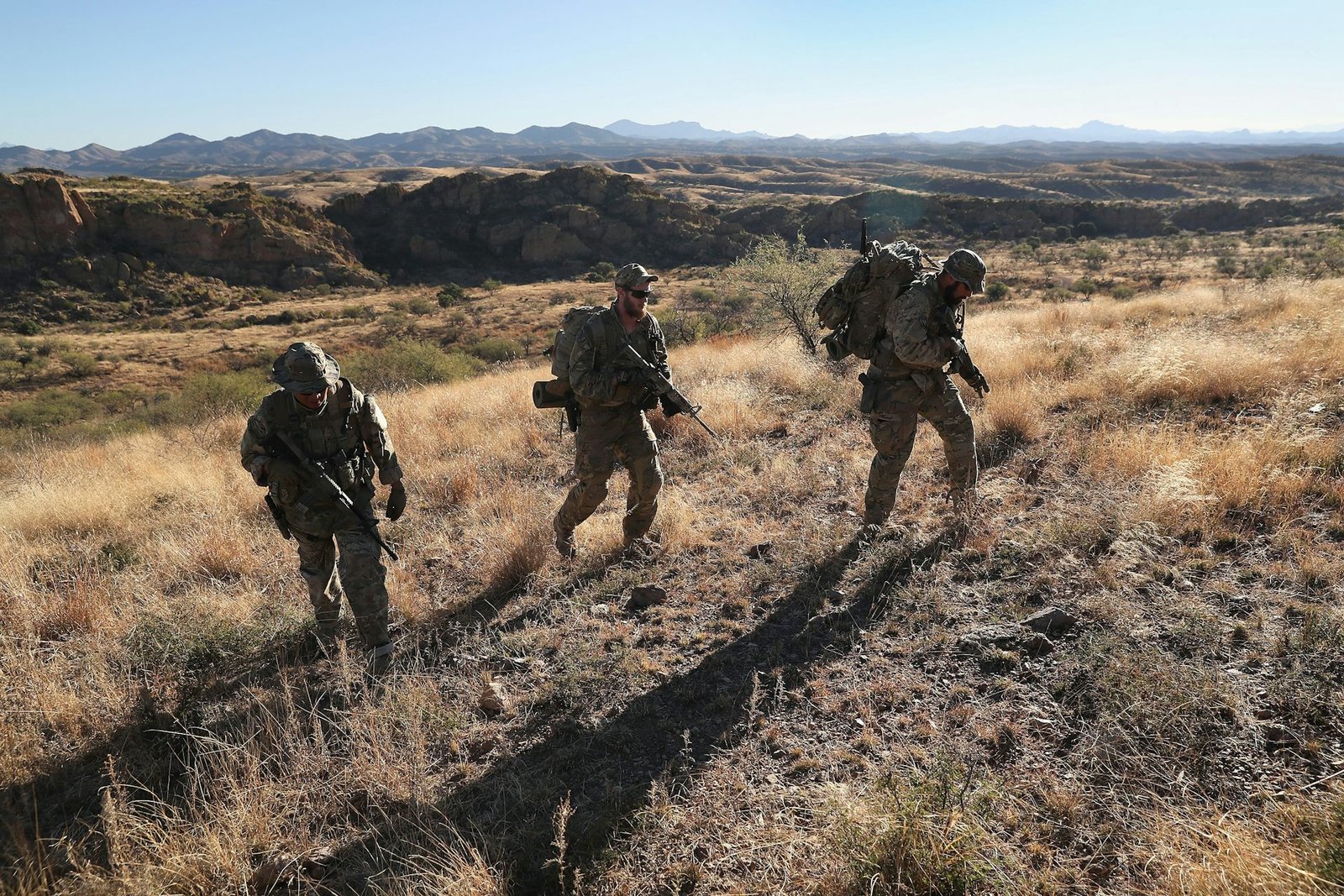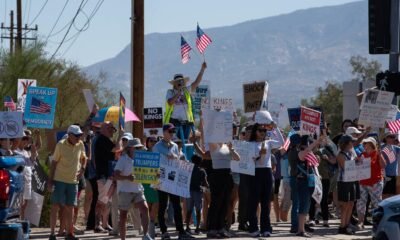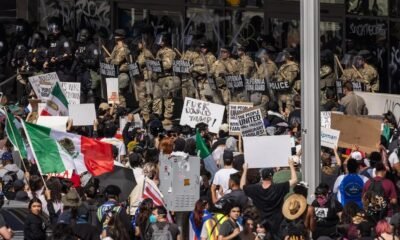Border Patrol
As Trump Unveils Immigrant Roundup Plans, Militias Prepare to Stand By

President-elect Donald Trump has announced plans to declare a national emergency upon taking office, intending to deploy the military on American streets to facilitate the mass deportation of undocumented migrants. This has raised significant concern among experts who highlight the essential role immigrants play in the U.S. economy. They caution that such mass deportations could severely impact critical sectors like food production and housing construction, while also traumatizing families.
As a scholar focused on domestic militias for over 15 years, I am worried about the potential for these groups to take on a supportive role in the deportation process. The anti-government sentiment prevalent in militia culture may not inhibit their involvement; instead, many may see assisting with deportation efforts as a patriotic duty. Reports suggest that local law enforcement could even enlist militia members as deputies in these actions.
Militias typically harbor a distrust of governmental authority, often viewing it as overreaching and corrupt. This disdain is accompanied by a belief that governmental authorities exploit taxpayers through excessive taxation. However, the militias’ perceptions of immigration and their self-styled mission of national protection could align with Trump’s deportation agenda.
Research indicates that militia members are often influenced by unfounded fears that undocumented migrants pose a safety threat. Some motivations stem from xenophobia, while others stem from misconceptions about immigration laws. Many militia members incorrectly equate undocumented status with an intention to break the law, overlooking pathways like asylum for those entering the country.
This belief fuels sentiments that migrants unfairly compete for jobs and benefits, a narrative that resonates with Trump’s anti-immigration stance. Moreover, militia members view the defense of the nation as a core government responsibility. Consequently, they might justify military involvement in deportations as a necessary action to safeguard national security.
Scholarly consensus warns that deploying the military domestically would pose a serious risk to democratic principles, even if legally sanctioned. Some militia groups operating in border regions have been active in surveillance and reporting on migrants, often leading to unnecessary detentions. Meanwhile, Border Patrol agents have expressed concern over the motives and operational capabilities of these civilian groups.
Recent years have seen local police agencies increasingly welcoming civilian participation in immigration enforcement, particularly among sheriff’s offices. These collaborations sometimes manifest in joint patrols or events alongside militias actively monitoring the border. Trump’s previous comments to militia groups indicate a willingness to engage with them, further complicating the relationship between federal authority and these decentralized groups.
The military’s role in immigration enforcement has already shifted, as evidenced by Texas Governor Greg Abbott’s deployment of the National Guard to impede Border Patrol operations under claims of an “invasion.” In a second term, Trump may feel emboldened to intensify his hardline immigration policies without restraint. The judicial system currently affords presidents substantial immunity for actions taken in office, creating a precarious situation for undocumented migrants.
In November 2024, two militia members faced convictions for plotting to kill Border Patrol agents, reflecting the potential for violent extremism within the militia community. It’s important to note that not all militia members support the idea of militarizing immigration enforcement; some emphasize the need to keep military operations separate from civil law enforcement. This perspective underscores the complex dynamics at play within these groups regarding the treatment of undocumented migrants.
This article is republished from The Conversation under a Creative Commons license. Read the original article.


















